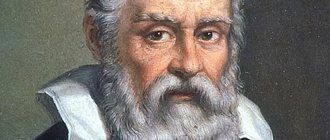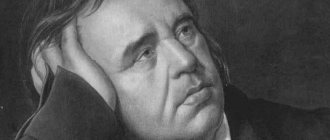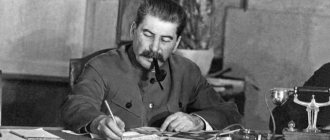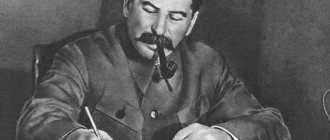Biography
The basic principles of philosophy were formed during the period of antiquity. Pythagoras, Socrates, Plato are outstanding writers, scientists and thinkers of their time. All of them contributed to the development of philosophy, and regarding Plato, the British logician Alfred Whitehead expressed that all European philosophy is, in fact, a footnote to the works of the ancient Greek, who became the founder of the idealistic movement.
Plato: interesting facts
12.12.2016
Plato was an outstanding personality - one of those mighty sons of ancient times, such as the Earth no longer produces in our time. If it were not for Plato, we would not know much of the thoughts of Socrates, whose sayings Plato faithfully recorded for posterity. And he himself made a great contribution to the development of philosophy. Let's get acquainted with some interesting facts from the life of Plato.
- The future philosopher was born into a family of aristocrats. His father's ancestors were of the royal family, and his maternal ancestors were engaged in lawmaking. It is not surprising that in such a family a new light of mind has appeared.
- Plato is not the philosopher's real name. In his youth, this nickname was given to him by a teacher, and it meant “broad” (the young man was athletically built and very broad-shouldered).
- At first, Plato prepared himself for political activity and composing theatrical productions. One day he was going to the theater with a fresh play, but on the way he met Socrates. After talking with the sage, Plato decided to leave both poetry and politics, and chose a different path - philosophical quests.
- Plato was a student of Socrates and teacher of Aristotle.
- One of the philosopher's hobbies was sports. He won the pankrateon competition 2 times at the Olympic Games (it was a type of wrestling).
- Those who knew Plato closely noted his modesty and shyness.
- After Plato received his education, he decided to leave Athens and went on a journey. His path lay to Italy, Egypt and other states. In Syracuse, Plato met the ruler - a cruel and cunning man. He tried to instill more democratic views in the tyrant, but nothing came of this idea: Plato was suspected of plotting against the ruler and was reported to the tyrant. He sold the philosopher into slavery. It is unknown how Plato’s life would have developed further (whether he would have remained alive at all) if not for the friends who managed to ransom the young scientist.
- Returning to Athens, Plato founded his own school - the Academy (the name came not from the academic knowledge that the students received, but from the name of the Academ Garden, where the school was located).
- Before teaching philosophy, Plato required his students to acquire skills in solving geometric problems. He also considered the science of arithmetic necessary to study. He used both disciplines as a means to exercise his mind before moving on to a more serious science - philosophy.
- It was Plato who first spoke about the disappeared continent - Atlantis, citing his evidence of its existence.
- The phrase “platonic love” appeared thanks to the famous philosopher. He put a slightly different meaning into this concept, not the one that is familiar to us today. The love-friendship between teacher and students was platonic.
- Plato believed that there are 2 parallel worlds - the world of ideas and the world of things. The soul comes from the higher spheres and inhabits a person even before birth. She already initially possesses all the necessary knowledge - you just need to help her “remember” them.
- Plato lived a long and fairly happy life. He died at the age of more than 80 years at a wedding feast, where he was invited as a guest.
Plato left to posterity many discussions about the structure of the world, about the correct organization of society. He believed that rulers are born with a golden soul, legislators with a silver one, and farmers and artisans with a copper one. Therefore, everyone has their own place in society. When a person leaves it, unrest ensues. But there are exceptions: sometimes the “copper” ones give birth to a child with a soul made of gold. In this case, we need to help him get to his “rightful” place.
In this original way, Plato was one of the first to say that every person should realize in life the talents allotted to him. He himself used his to the fullest: to this day, future historians, philosophers and political figures study it without fail.
Article rating:
8073
views
Author: Irina Burdakova
Childhood and youth
The exact year in which the philosopher was born is unknown. There is an assumption that this happened in 428 or 427 BC. The birthday is considered to be May 21 (7th Farhelion), on this day the Greeks celebrated the birthday of the son of Zeus and the Titanide Leto - Apollo.
There is also no specific information about the exact place of birth. Most sources call Plato's hometown Athens, but there is another option. According to him, the biography of the future philosopher began on the island of Aegina, located in the Saronikos Gulf, and Plato’s family moved to Athens in order to give their children a good education.
By the way, not only the year and place of Plato’s birth are considered controversial. There is an opinion that in fact the philosopher's name was Aristocles, and Plato was a nickname he received from his pankration coach, wrestler Ariston of Argos, because of his broad shoulders (“platos” translated from ancient Greek as “broad”). This was first mentioned by the ancient historian Diogenes Laertius.
Ancient Greek philosopher Plato.
Published by Writers and Philosophers Tuesday, December 3, 2021
Bust of Plato
Plato's parents belonged to the class of aristocrats. The philosopher's father is a descendant of the king of Attica Codra, and his mother is the Athenian reformer Solon. On his mother's side, Plato had two uncles, Critias and Charmides, both members of the Thirty Tyrants group of pro-Spartan rulers. In addition to Plato, Ariston and Periktiona (that was the name of his parents) had other children - the sons Glaucon and Adeimantus, as well as the daughter of Poton.
The children received a classical musical education - the so-called education that included aesthetic, moral and mental education in the system (named after the muses). Plato was taught at that time by the pre-Socratic philosopher Cratylus, a follower of Heraclitus of Ephesus. Under his leadership, the future thinker studied literature, rhetoric, ethics, foundations of science and other disciplines.
During his studies, Plato achieved his best results in literature, fine arts and wrestling, and later participated in the Olympic and Nemean Games.
Leonardo da Vinci as Plato
Published by Alexander Kalinkovitsky Wednesday, June 19, 2021
Plato in Raphael’s fresco “The School of Athens”
Plato’s childhood and youth fell in the post-Periclean era, when cowardice, laziness and greed were spreading among the population. The situation was only intensified by the military conflict between the Delian and Peloponnesian Leagues.
The politician Ariston tried to improve the lives of his fellow citizens. Therefore, he wanted his son, after receiving his education, to also become a politician, but Plato himself had different views on the future. He tried his hand at writing, composing poems and dramas.
In 408 BC. e. young Plato decided to take the tragedy he had written to the local theater. On the way, he encountered an elderly but strong man. They struck up a conversation that turned the young man’s life upside down and also gave him the start of a new life. This man was Socrates.
Student of Socrates, relative of the tyrant
Biographies of poets and philosophers rarely came to the attention of serious Greek historians. Mostly fans of entertaining facts wrote about them. Therefore, in the biography of Plato and other philosophers, truth is not always easy to separate from fiction. In addition to the late work on the thinker written by Diogenes Laertius, Plato’s letters have also been preserved. Some facts of his biography can be isolated from his philosophical works.
Even the philosopher's real name is in question. In Antiquity they wrote that his real name was Aristocles, and Plato was his nickname. He received it either for his physical characteristics or for the width of his forehead. Most likely, these are legends, and Plato was his real name.
He came from an aristocratic family. Plato's father was Ariston, and his mother was Periktiona. The family belonged to the deme of Kollit. The philosopher's parents came from noble families, whose ancestors held the honorary position of archon-eponym in the 7th and 6th centuries BC. e. Plato's mother came from the same family of Codrides as the legislator Solon.
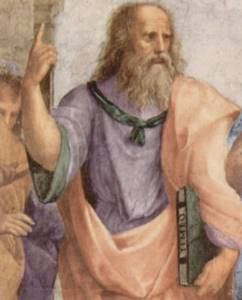
Plato in Raphael's fresco "The School of Athens". (wikimedia.commons)
Plato had two older brothers, Adeimantus and Glaucon, and a sister, Poto. Plato's brothers fought in the ranks of the Athenian militia at Megara in 409 BC. e.
Shortly after Plato's birth, his father Ariston died. Periktion was married to her mother's brother (such marriages were allowed in Athens) Pyrilampos. He was a widower and raised his son Demos from his first marriage.
It is known that Pyrilampus was a wealthy man and a friend of Pericles. He bred exotic birds and, as evil tongues said, sent them as gifts to Pericles' mistresses. Nevertheless, he fought in the ranks of the Athenian militia in the battle with the Boeotians at Delium (424 BC) and was wounded. Perictiona gave birth to another son to her new husband, who was named Antiphon in honor of his father Pyrilampos.
The exact dates of Plato's life are practically unknown. Few facts can be extracted from fragments of contemporary authors. Thus, it is known that the future philosopher was born in Athens in the 420s BC. e. He left the polis at the age of 28, after the execution of Socrates. And he died in Athens in the 13th year of the reign of Philip of Macedon (348/347 BC).
Like other noble Athenians, Plato had to be educated at home. It included music, the basics of mathematics, astronomy, philosophy, and history. Older relatives had to introduce the teenager to social life. In Plato's case, this was probably done by his brothers. Most likely, this is how he met Socrates, whom Glaucon knew.
Plato also had to listen to the fashionable sophists of that era, who gathered students around them. The fact that he made some of them the heroes of his dialogues speaks of his acquaintance with the Sophists.
In his youth, like other young Athenian aristocrats, Plato was a student of Socrates. His other student Xenophon wrote about the young man’s friendship with the philosopher in his “Memoirs of Socrates.” In particular, he recalls a detailed conversation between Socrates and Plato's brother Glaucon, who already had political ambitions in his youth.
Judging by Plato's surviving letter, he came of age towards the end of the Peloponnesian War, when Athens was ruled by the College of the Thirty. The young man had high hopes for the new government of 51 people (30 and two subordinate boards), which included his relatives - his uncle Charmides and his uncle or great-uncle Critias (the head of the government). At the same time, he received an offer from his relative Critias to enter politics. Plato decided to wait, and then saw that the regime of the Thirty was even worse than the previous democracy.
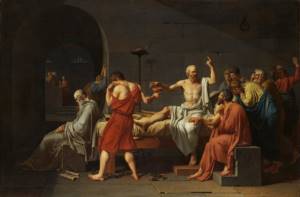
David "The Death of Socrates". (wikimedia.commons)
A year later, during the civil war, democracy was restored in Athens, and Critias and Charmides were killed. In 399 BC. e., when Socrates was sentenced to execution, Plato was about 25. A few years later, he and several other students of Socrates went to Megara to study with the philosopher Euclid. After studying with Euclid, Plato returned to Athens. He turned 30 and was about to take over land ownership.
Personal life
Plato's personal life is mysterious even for historians who have reconstructed the facts of his biography bit by bit. The philosopher preached the rejection of private property, as well as the community of wives, husbands and children. Therefore, it is impossible to single out one wife of Plato, just as it is impossible to accurately name his biological children.
Officially, Plato was never married. He himself promoted the concept of platonic love, explaining this feeling as respect and care between students and teacher, explaining that it is necessary to love not a person’s body, but his soul. He considered emotions to be something low that one must be able to keep under control.
Biography of Plato
The exact date of Plato's birth still remains unknown. It is believed that he was born at the turn of 429 and 427 BC. e. in Athens, and possibly on the island of Aegina.
Disputes still rage among Plato's biographers regarding the philosopher's name. According to one opinion, his real name was Aristocles, while Plato was his nickname.
Childhood and youth
Plato grew up and was brought up in an aristocratic family.
According to legend, the philosopher’s father, Ariston, came from the family of Codra, the last ruler of Attica. Plato's mother, Periktion, was a descendant of the famous Athenian politician and poet Solon.
The philosopher’s parents also gave birth to a girl, Poton, and 2 boys, Glaucon and Adeimantus.
All four children of Ariston and Periktiona received general education. It is worth noting that Plato’s mentor was the pre-Socratic Cratylus, a follower of the teachings of Heraclitus of Ephesus.
During his studies, Plato learned best from literature and the visual arts. Later, he became seriously interested in wrestling and even took part in the Olympic Games.
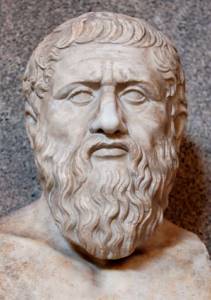
Plato's father was a politician who strove for the well-being of his country and its citizens.
For this reason, Ariston wanted his son to become a politician. However, Plato did not really like this idea. Instead, he took great pleasure in writing poetry and plays.
One day, Plato met a mature man with whom he began a dialogue. He was so impressed by his interlocutor’s reasoning that he was indescribably delighted. This stranger was Socrates.
Philosophy and views
The teaching of Socrates was reformist; it was strikingly different from what had come before. In his philosophy, the emphasis shifted from studying the world and nature to man. The views and statements of Socrates impressed the young Plato, as evidenced by the latter’s works.
In 399 BC. e. Socrates was convicted and sentenced to death. The philosopher was accused of not honoring the gods revered by the inhabitants of the city, but instead spreading a new faith, thereby corrupting the people. Out of respect for past merits, including participation in the Peloponnesian War, Socrates was allowed to give a defense speech (on the basis of which Plato’s Apology of Socrates was written), and the death penalty was carried out by drinking poison from a chalice.
The execution of Socrates seriously influenced Plato, causing a fierce hatred of democracy. After the death of his teacher, he goes on a journey, the goals of which are to meet other scientists, exchange experiences with them and learn about dialectic issues about the foundations of being. Over the next 10-15 years, the philosopher visited Megara, Cyrene, Phenicia and Egypt. During this time, he managed to meet and communicate with Archytas of Tarentum, with other students of Socrates Euclid and Theodore, as well as with Eastern magicians and Chaldeans. The latter forced Plato to become seriously interested in Eastern philosophy.
Luca della Robbia.
"Plato and Aristotle, or Philosophy." 1437-1439 Cathedral Museum. Florence. Published by Writers and Philosophers Tuesday, December 10, 2021
Plato and Aristotle
After long wanderings, Plato arrived in Sicily. The philosopher’s plans were to create a new state together with the local military leader Dionysius the Elder (also known as Syracuse). According to the man, in the new state philosophers should rule, and not drink poison from the chalice while the cheering crowd shouts. But the idea was never realized: Dionysius turned out to be a tyrant who categorically did not like Plato’s ideas.
After this, the philosopher decided to return to Athens. The city forced Plato to reconsider some ideas about the ideal state. The result of these thoughts was the discovery in 387 BC. e. The Academy is an educational institution in which Plato began to teach other people. This is how a new religious and philosophical union was formed.
Plato's school was named after the area where the lessons were held (a park outside of Athens), and the area itself was named after the mythical hero Hekademos. At Plato's Academy, students studied mathematics, philosophy, natural science, astronomy and other sciences. Training took place through dialogues: Plato believed that this was the best method of understanding the essence of things.
Aristotle, Plato and Socrates.
According to the Louvre Museum. Paris. France. )))))) To be honest, I never thought about what they looked like, but I accidentally saw them in the Louvre. Published by Gauhar Satpayeva Sunday, January 20, 2013
Aristotle, Plato and Socrates
One of his dialogues was published under the title “Symposium”; it is presented in the form of a conversation between the ancient Greeks who praise the god Eros. The philosophical text talks about love, its types and the knowledge of this feeling. The central place is occupied by Socrates' ideas about the beautiful, the essence of which is good.
The teachers and students of the Academy lived together, this man adopted from the followers of Pythagoras. The students were the astronomer Eudochus (who introduced Plato closer to Eastern teachings and religions) and the philosopher Aristotle.
In 366 and 361 BC. e. Plato revisits Sicily at the invitation of Dion's friend, the ruler of Syracuse and brother-in-law of Dionysius the Elder. Dionysius does not like this situation, which he eloquently makes clear by the murder of Dion. The death of a friend upset Plato and forced him to return back to Athens, where the philosopher continued to teach his followers until the end of his days.
Raphael's greatest masterpiece, La Scuola d'Atene (The School of Athens), is housed in the Stanze di Raffaello (Raphael's Stanzas) in the museums...
Published by Lonely Planet Russia Saturday, August 31, 2013
Plato and Aristotle surrounded by famous philosophers in Raphael's fresco "The School of Athens"
Later, in an effort to create a concept that united man and the cosmos, the philosopher came to objective idealism. In his writings, he reflected on the soul and non-existence, believing that all objects that surround a person are the result of a combination of inanimate matter, ideas and souls. Plato believed that there is an ideal world of things. According to his understanding, all objects of this world are perfect samples, prototypes of objects that exist in reality.
To date, not a single original work of Plato has survived, but there are copies. The oldest copy of the philosopher's work was found in the city of Pemja (160 km southwest of Cairo), written on Egyptian papyrus.
Plato's works form the Platonic Corpus. For the preservation of the philosopher’s collected works, we should thank the ancient Greek bibliographer Aristophanes of Byzantium. By the way, he was the first to structure Plato’s works, dividing them into trilogies.
Later, the restructuring was carried out by the philosopher Thrasyllus of Menda, the court astrologer of Tiberius Julius Caesar Augustus. Thrasyllus grouped Plato's works into tetralogy, a division that is still used today.
There were other attempts to structure and group the philosopher’s works. The version of the Russian antique scholar Alexei Fedorovich Losev is popular. According to Losev, Plato's books should be divided into 4 periods - early (Crito, Charmides, etc.), transitional (Euthidemus, Ion, etc.), mature (Timaeus, Republic, etc. ) and late (“Laws” and “Post-Law”).
At one time, one work by Plato, Timaeus, was available to the public. The situation was corrected by the Italian philosopher Marsilio Ficino (1433–1499), who translated the remaining works from ancient Greek into Latin.
Death of an Idealist Theorist
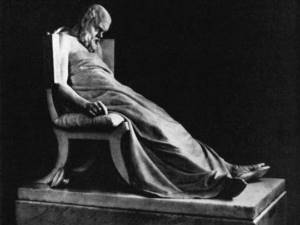
No matter how much a person monitors his own health, there comes a time when the body wears out. This will inevitably happen to everyone who was born, but death never frightened our hero, because he sincerely believed in the immortality of the soul. Therefore, he planned to be reborn one day in one of the best worlds.
Last years and death
In the year 367, as we already wrote, Dionysius the Younger, not without the participation of his uncle, who had become friends with the philosopher under his father, decided to invite the scientist back to Syracuse. Plato, not feeling a catch, agreed. He really believed that it was possible to build an ideal policy in which everything would be perfect. The young man really patiently followed all the orders of the thinker, but in the end he got tired of obeying, and he drove him away. On top of that, he manages to quarrel with his uncle, which turns him even more against Plato.
The philosopher fled from Syracuse under the cover of darkness, swallowing tears - the seventy-year-old man did not understand why his recent patron was so cruel to him. Five years later, the extravagant Dionysius called him back, and the sage again agreed and was deceived. It was at that time that Aristotle came to the Academy, since he appeared there during Plato’s absence. According to legend, all this overwhelmed the elderly man, and he died on his birthday in three hundred and forty-seven BC. It is believed that his ashes rested right in the Academy under a sign with the name Aristocles.
In memory of the ancient scientist
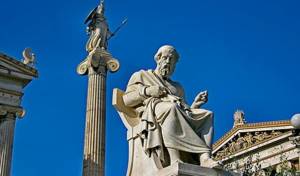
People of art could not ignore this remarkable man, thanks to whom the words of his teacher Socrates have been preserved to this day. The fresco by the great artist Raphael Santi called “The School of Athens” depicts the master with a raised finger, because he considered the sky to be the source of enlightenment. In 1869, Anselm von Feuerbach wrote the canvas “Plato’s Feast”, which plays out the plot of his dialogue of the same name.
The scientist appears many times in cinema. In 1948, a film called “Blood, Voluptuousness and Death” was released, in the seventy-first film “Socrates”, where our character is also present. In two thousand and ten, the last film called “The Death of Socrates” was released, in which the philosopher also appears.
Death
After the assassination of Dion of Syracuse in 354 BC. e. Plato returned to Athens, where he lived until the end of his days. In the last days of his life, he began work on a new book, “On Good as Such.” Plato had already formulated the basis of the work and shared it with his students. However, it was not possible to transfer my thoughts onto paper.
Historians wrote that the student Socrates was never seen laughing, but he went to bed with a volume of Aristophanes, the great poet. Despite Plato's importance in philosophy, little is known about his daily life; in his dialogues he only occasionally mentioned himself, describing some minor events.
Plato (Πλάτων).
Ancient Greek philosopher, student of Socrates, teacher of Aristotle. Published by Gennady Kirillin Saturday, November 9, 2021
Monument to Plato
On his own birthday in 348 (or 347) BC. e. Plato left this world for natural reasons, given his age. There is more than one version of these events. According to one of them, the man died at his desk, according to another - at a wedding feast. Pediculosis is also called one of the reasons for the philosopher’s death, but regarding this, in “The History of Philosophy,” Thomas Stanley wrote that people spreading such unpleasant rumors around Plato caused him considerable harm.
The philosopher was buried in Ceramics, not far from the Academy. The words were carved on his tombstone:
“Apollo begat two sons, Aesculapius and Plato. One heals bodies, and the other heals souls.”
In memory of Plato, paintings were written and engravings were drawn. The philosopher appeared as a character in the films “Blood, Voluptuousness and Death” (1948), “Socrates” (1971), “Night” (1985), “The Feast” (1989). In 2010, the feature film “The Death of Socrates” was released, in which Plato appears.
short biography
Name: Plato
Years of life: about 429-427 BC. e. - 347 BC e.
State: Ancient Greece
Field of activity: Philosophy
Greatest achievement: Was a student of Socrates, and became the teacher of Aristotle. His works have reached us completely preserved.
Plato (428/427 - 348/347 BC) is an outstanding Greek philosopher, known for his famous dialogues, as well as for the Academy created in Athens - the prototype of the world's first university.
Plato was born into a very rich and powerful family. Many of his relatives were connected with Athenian politics, although the future philosopher himself was not interested in political issues. For some time, Athens was the center of the Peloponnesian War, and Plato fought for victory for several years as an ordinary soldier.
When Plato was young, he decided to listen to Socrates' lectures. Plato learned a lot from Socrates: how to manage his thoughts, build conclusions and what to think about.
When in 399 BC. Socrates was killed, Plato was heartbroken. Soon the young man (Plato was about 30 years old) began to remember the dialogues that he had with his teacher and reproduced them on paper.
Almost all the information we know about Socrates is preserved only in the records of Plato.
Ideas and discoveries
Plato's philosophy is based on Socrates' theory, according to which true knowledge is possible only in relation to non-subjective concepts that constitute an independent incorporeal world coexisting with the sensory world. Being is essences, eidos (ideas), not subject to space and time. Ideas in Plato's understanding are autonomous, which means that only they can be known. This is stated in the works of the transitional and mature period.
Plato's works Critias and Timaeus first describe the history of Atlantis, which is an ideal state. However, its exact location could not be determined. Presumably, the island was located to the west of the Hercules Heights. The philosopher associated his disappearance with the earthquake that occurred, due to which the island state sank under water in one day along with its inhabitants, the Atlanteans.
Interest in Atlantis first appeared during the Renaissance, but questions about its actual existence remained controversial in science. Because of this, the story of the island is considered a legend, but attempts to find real facts and events confirming its existence have been made more than once.
The cynic Diogenes of Sinope (the one who lived in a barrel and walked during the day with a lantern “in search of a man”) often argued with Plato. When Plato said about man that he is a two-legged animal, devoid of feathers, Diogenes slipped him a plucked chicken, calling him Plato's man. After this, the philosopher had to add the phrase “with flat (wide) claws” to the formulation.
Plato is an opponent of passion and vivid manifestations of emotions; he believed that such behavior is base and contains a harmful principle. He expressed his opinion on the relationship between men and women in various works.
We know about the views and teachings of Socrates precisely from the writings of Plato, since Socrates himself did not leave any writings. Plato conscientiously wrote down many of Socrates’ thoughts and sayings for posterity. And he himself made a great contribution to the development of philosophy.
Plato used his talent to the fullest: to this day it is compulsorily studied by future historians, philosophers and political figures.
Plato founded a philosophical school in Athens - the Academy, which existed for about 900 years after his death, until it was closed by the Byzantine emperor Justinian. Many talented philosophers, famous Attic orators and statesmen emerged from the walls of the Academy.
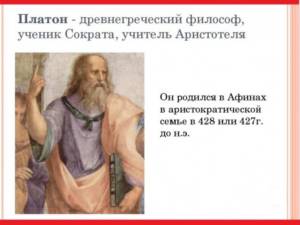
From Plato's biography:
Plato's real name is Aristocles. His gymnastics teacher nicknamed him “Plato” (“broad”) because of the width of his shoulders. The young man was athletically built and very broad-shouldered.
The future philosopher was born into a family of aristocratic origins; the family of his father Ariston was traced, according to legend, to the last king of Attica, Codrus, and the ancestor of Periktiona, Plato’s mother, was the Athenian reformer Solon. Since his father’s ancestors were of the royal family, and his maternal ancestors were engaged in lawmaking. It is not surprising that in such a family a new light of mind has appeared.
The exact date of Plato's birth is unknown. Following ancient sources, most researchers believe that Plato was born in 428-427 BC. in Athens or Aegina, just at the height of the Peloponnesian War between Athens and Sparta. According to ancient tradition, his birthday is considered to be May 21, on which, according to mythological legend, the god Apollo was born.
Having received a comprehensive education corresponding to the status of his parents, Plato took up painting, wrote tragedies, epigrams, comedies, and participated as a wrestler in Greek games, even receiving an award.
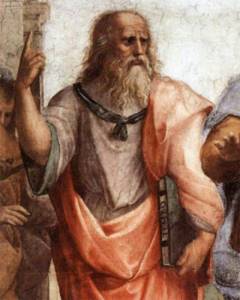
Plato's first teacher was the Heraclitian Cratilus, then Socrates. According to legend, in his youth Plato wrote poetry and prepared himself for politics. One day he was carrying a tragedy he had just written to the theater, but he met Socrates, and under the impression of a conversation with him, he burned his tragedy and took up philosophy. This meeting took place when Plato himself was about 20 years old. This happened around 408 BC. e. After talking with the philosopher, he joins the ranks of Socrates' students, subsequently becoming his friend.
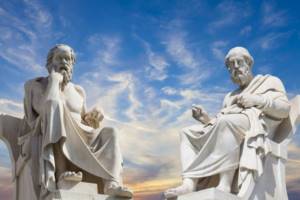
Socrates and Plato
Eight years of friendship between Plato and Socrates ended quite sadly: Socrates was sentenced to death, and Plato embarked on a 12-year journey.
As you know, Socrates was convicted by an Athenian court and sentenced to death. Plato, along with other students, tried to influence the court's decision and save Socrates, but when nothing came of this, he left Athens and went on wanderings for many years. He visited Persia, Assyria, Phenicia, Babylon, Egypt and possibly India.
There Plato continued his education, listening to other philosophers of Asia Minor and Egypt, and there, in Egypt, he received initiation, stopping at the third stage, which gives clarity of mind and dominance over the essence of man. Soon Plato goes to Southern Italy, where he meets the Pythagoreans. Studying the manuscripts of Pythagoras, he borrows his ideas and plan for the system.
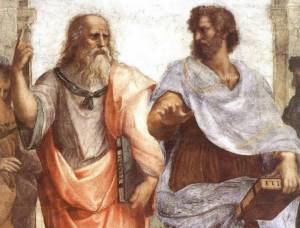
Plato and Aristotle
Returning to Athens in 387, Plato founded his own philosophical school, the Academy. The name came not from the academic knowledge that the students received, but from the name of the Academian gardens, which, in turn, were named after the ancient hero Academ.
Near the entrance to the academy there was an inscription: “Those who do not know geometry are not allowed to enter.” In general, Plato believed that four disciplines should be taught - arithmetic, geometry, stereometry and theoretical astronomy. Plato emphasized not at all the practical usefulness of these sciences, but their importance for exercising the mind before moving on to a more serious science - philosophy. Many wise and talented people came out of the academy and became famous to this day. (For example, Aristotle is a direct student of Plato).
Plato lived a long and fairly happy life. He died at the age of more than 80 years at a wedding feast, where he was invited as a guest.
He died in 347, according to legend on his birthday. The burial took place at the Academy; there was no place more dear to him. According to legend, an inscription was engraved on his grave: “Apollo gave birth to two sons - Aesculapius and Plato, He heals bodies, this healer of the soul.”
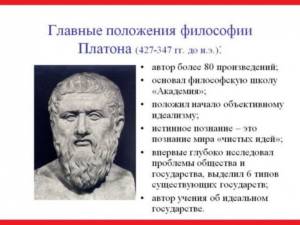
Plato's main teachings:
Plato's works were popular for a long time, laying the foundation for the emergence and development of many branches of philosophy. 34 works are attributed to him, it is known that most (24) of them were the true works of Plato, the rest were written in dialogue form with his teacher Socrates.
The first collection of Plato's works was compiled by the philologist Aristophanes of Byzantium in the 3rd century BC. Plato's original texts have not survived to modern times. The oldest copies of works are considered to be copies on Egyptian papyri.
In the scientific life of Europe, Plato's works began to be used only in the 15th century, after the translation of all his works into Latin by the Italian Christian philosopher Ficino Marsilio.
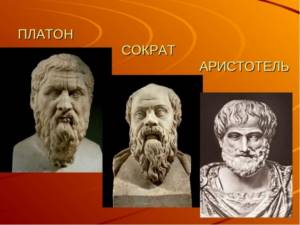
The dialogues of the early period (399 - 387) are devoted to clarifying moral issues (what is virtue, goodness, courage, reverence for laws, love of country, etc.), as Socrates loved to do.
Later, Plato begins to present his own ideas, developed in the Academy he founded. The most famous works of this period: “The Republic”, “Phaedo”, “Phileb”, “Symposium”, “Timaeus”. And finally, in the 50s of the 4th century, Plato writes a huge work, “Laws,” in which he tries to present a state structure accessible to real human understanding and real human strength.
Plato is the first philosopher in Europe to lay the foundations of objective idealism and develop it in its entirety. Plato's world is a beautiful, material cosmos that has gathered many individuals into one inseparable whole, governed by laws located outside of it. These are the most general patterns that make up a special supercosmic world called by Plato the world of ideas. Ideas determine the life of the material world; they are beautiful eternal patterns according to which the multiplicity of things formed from infinite matter is built
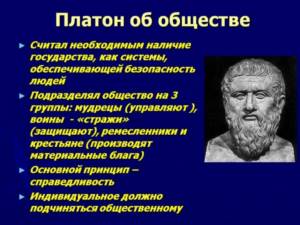
Throughout his life, Plato’s soul was excited by high moral goals, one of which was the ideal of the revival of Greece. This passion, purified by inspired thought, forced the philosopher to repeatedly attempt to influence politics with wisdom. Three times (in 389-387, 368 and 363) he tried to implement his ideas of building a state in Syracuse, but each time he was rejected by the ignorant and power-hungry rulers.
Plato's dialogues revealed his extraordinary literary talent; he made a whole revolution in the manner of philosophical presentation. No one before him had so imaginatively and vividly shown the movement of human thought moving from error to truth, in the form of a dramatic dialogue of competing ideas and opposing beliefs.
*Plato about man
Plato saw the essence of man in his eternal and immortal soul, which enters the body at birth. Therefore, it requires cleansing of the soul, cleansing from worldly pleasures, from secular life filled with sensual joys. Man’s task is to rise above disorder (the imperfect sensory world) and with all the strength of the soul to strive to become like God, who does not come into contact with anything evil. It is to free the soul from everything corporeal, to concentrate it on itself, on the inner world of speculation and deal only with the true and eternal. Plato's philosophy is almost entirely permeated with ethical problems: his dialogues discuss such issues as the nature of the highest good, its implementation in people's behavior and in the life of society.
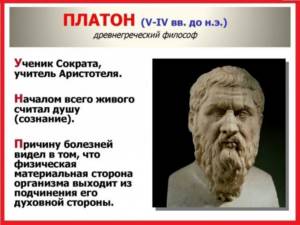
*Plato on the soul
Plato believed that the human soul is threefold. Its first part is the rational one, addressed to ideas. The rational part of the soul is the basis of virtue and wisdom; The second is the ardent, affective-volitional part of the soul—the basis of courage. The third part is sensual, driven by passions and lusts. This part of the soul must be limited in its manifestations by the mind. The harmonious combination of all parts of the soul under the regulative principle of reason provides a guarantee of justice.
*Plato's doctrine of knowledge
Plato believed that true knowledge cannot be conveyed in words or in sensory perception. For the correct movement towards the truth, the soul must be cleansed of incorrect opinions that have accumulated in it during a non-philosophical life, and a person must understand (remember) the correct opinion himself. Plato divides everything accessible to knowledge into two types: comprehended by sensation and cognizable by the mind. The relationship between the spheres of the sensed and the intelligible also determines the relationship between different cognitive abilities: sensations allow us to understand (albeit unreliably) the world of things, reason allows us to see the truth.
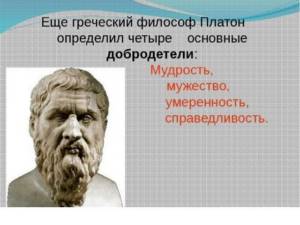
*Plato’s “Model of the World” Plato
argued that there is a world of ideas and a parallel material world. In the kingdom of ideas live the ideas themselves (eidos), full of divine meaning. Ideas are the basis of the whole world; these are target reasons charged with the energy of aspiration; this is the divine regulation of all processes occurring in the Universe. There are relationships of coordination and subordination between ideas. The highest idea is the idea of absolute good (Agaton; world Reason; Divinity).
*Plato on the state
Plato defines the state as “a single whole within which individuals unequal by nature perform their various functions.” In addition, Plato believed that the state is like a person. In the state there are the same three principles as in the human soul: reason, rage and lust. The natural (and ideal) state is when the mind leads. Plato considered the Attic city-polis to be an ideal state. The ideal state is located in a specific political time and space. Already in the time of Plato, such a state belonged to the past. The ideal state is the opposite of the individualistic Greek state.
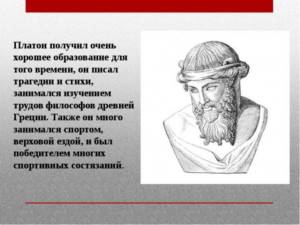
Interesting facts from the life of Plato:
*One of the philosopher Plato’s hobbies was sports. He twice won the pankrateon competition at the Olympic Games (this was a type of wrestling back then).
*Plato was the first to talk about the existence of Atlantis, a lost highly developed civilization. Having told in his writings about this legendary island, which sank as a result of the disaster, Plato asked a riddle that humanity is still struggling with.
*Platonic love was first described in Plato’s dialogues, and initially meant the love-friendship of a teacher and a student (for example, Plato and Aristotle).
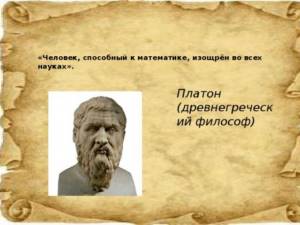
*Contemporaries who knew Plato closely noted his modesty and shyness.
*It was Plato who came up with the hypothesis that everyone is looking for their “soul mate.”
*Plato was one of the first to say that every person should realize in life the talents allotted to him.
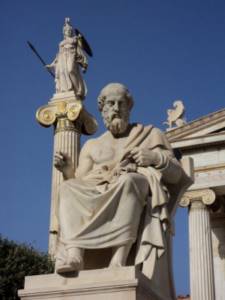
*The “bell for class” is also an invention of Plato. The students of the Academy were called to classes by a signal given by the clock: when all the water flowed out of the container, a stream of air passed through the valve, causing the flute to sound.
* Plato left to posterity many discussions about the structure of the world, about the correct organization of society.
* It is noteworthy that before meeting Plato, Socrates saw in a dream, on his lap, a young swan, which, flapping its wings, took off with a wondrous cry. The swan is a bird dedicated to Apollo. Plato found a teacher in the person of Socrates, to whom he remained faithful all his life and whom he glorified in his writings, becoming a poetic chronicler of his life.
*Socrates gave Plato what he so lacked: a firm belief in the existence of truth and the highest values of life, which are learned through familiarization with goodness and beauty through the difficult path of internal self-improvement.
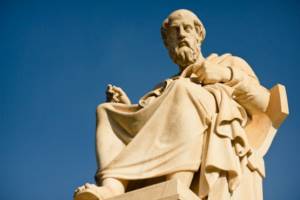
photo from the Internet
Quotes
“Socrates is my friend, but the truth is dearer” (later this quote became “Plato is my friend, but the truth is dearer,” which was attributed to Aristotle, Martin Luther and Cervantes).
“When people are forced to choose between two evils, no one will obviously choose the greater if there is an opportunity to choose the lesser.”
“What will education be like? However, it is difficult to find a better one that has been found since ancient times. For the body it is gymnastic, for the soul it is musical.”
“You can forgive a child who is afraid of the dark. The real tragedy of life is when a man is afraid of the light.”
“Those who are smart enough to stay out of politics are punished by being ruled by people dumber than themselves.”

